In the centre of Bury St Edmunds is the remains of one of the most powerful Benedictine monasteries in England with a complete 14th century gatehouse and Norman tower. The location has been popular with pilgrims since 903 when the relics belonging to king St Edmund were moved here. The abbey was founded in 1020, and it became one of the wealthiest and powerful in England.
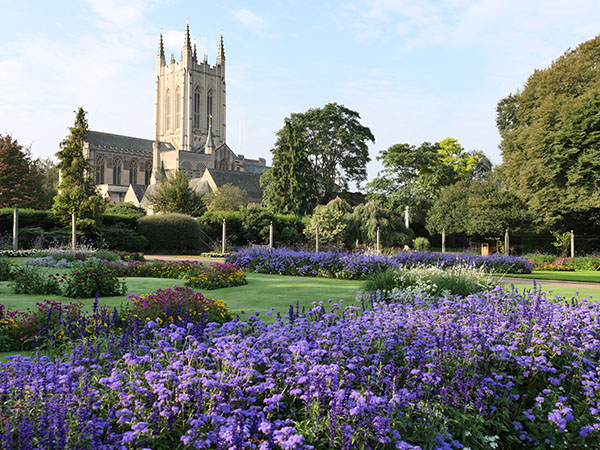
The abbey was the important place with history of the Magna Carta. People were upset with the treatment under king John in 1214, so they aired grievances in the abbey. This paved the way for the Magna Carta.
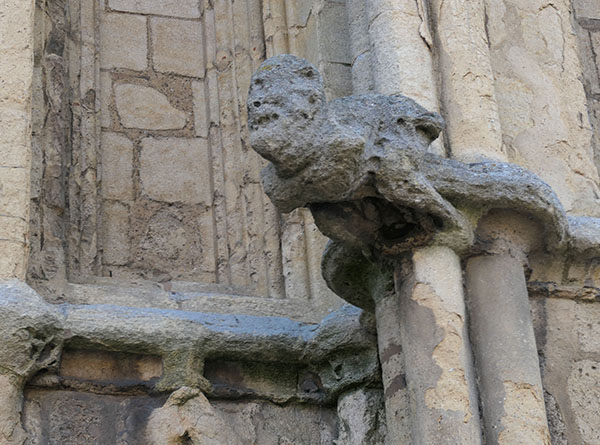
In the 1300s, the townspeople clashed with the abbey and rioted often for 100 years. In the 1400s, Henry VI stayed at the abbey for four months from Christmas.
The abbot's palace survived the dissolution of the monasteries and was in use as a house until 1720.
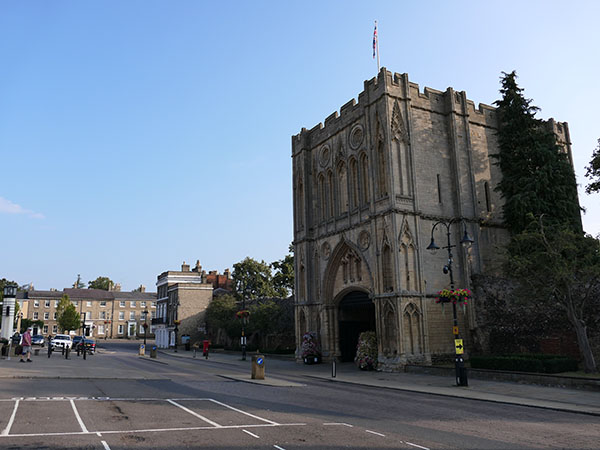
Visitors can see the abbey remains of the crypt and imagine how wonderful it would have looked. The gate shows the example of stonework and detail, and the abbey would have been much more impressive. The abbey entrance to the great court was damaged in 1327 when the townspeople stormed the gate and kidnapped the abbot. The new gate was built in the 1400s to replace the old one.
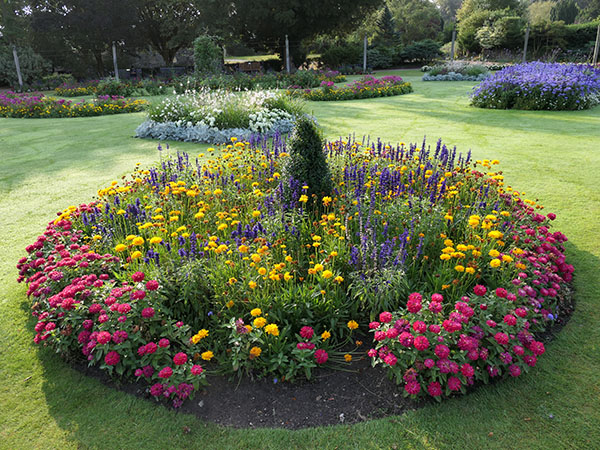
The grounds of the abbey area are now gardens with beautiful flowers and views over the cathedral, and the ruins make up one section. During the monastery days, the gardens would have been the site of various workshops dedicated to daily life. Inside the gardens are an "Internet Bench", which is famous and cutting-edge for its time. It contained a dial-up modem so that people could sit and use the Internet. (There was no such thing as WiFi then.) The connection has since been disabled as no one uses dial-up modems now, so it was no longer required, but it served a place in history.
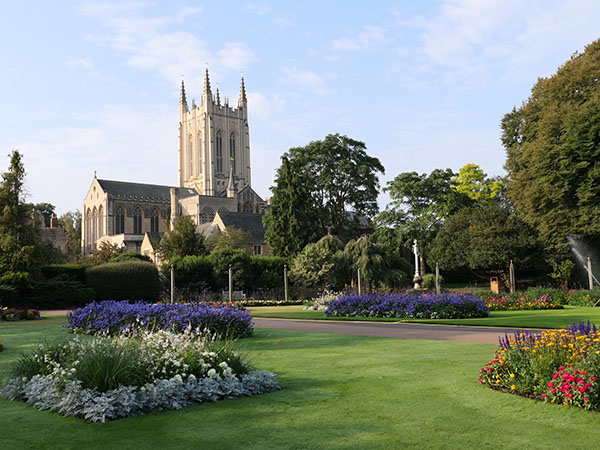
The rose garden outside the cathedral contains several memorials to people or troops who served in the wars. There are several monuments and plaques and a bench created from a plane and dedicated by the U.S. Air Force.
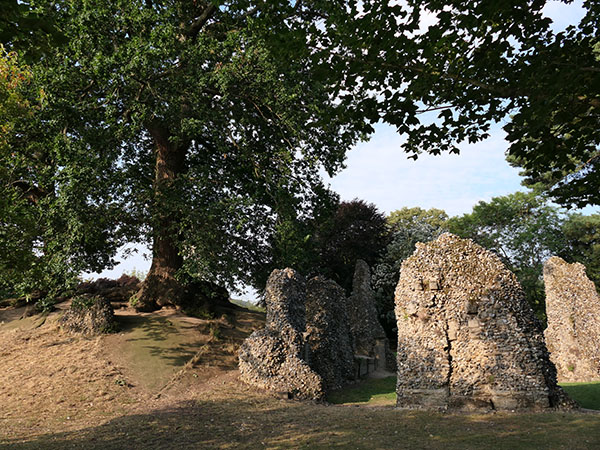
Groups of ruins exist around the ruins of the abbey.
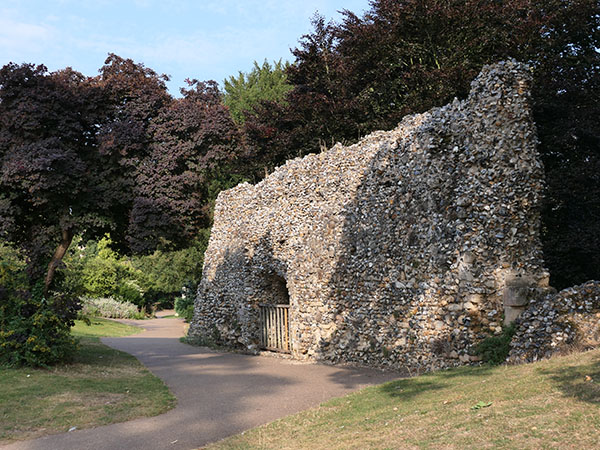
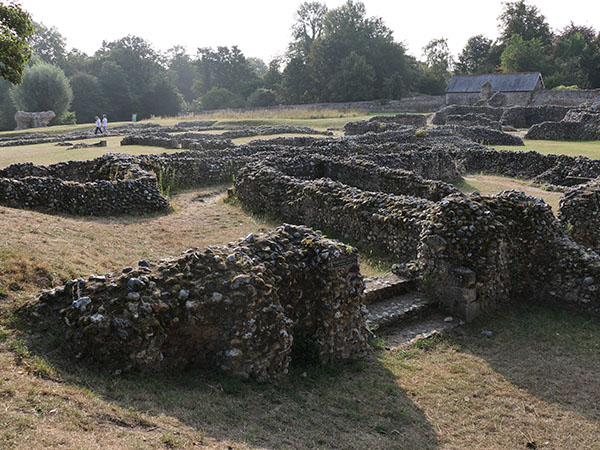
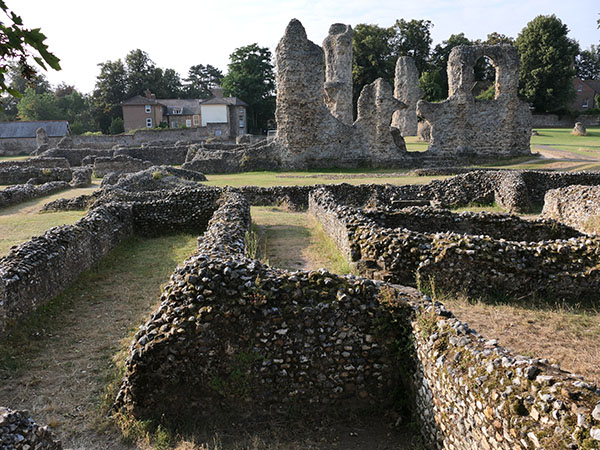
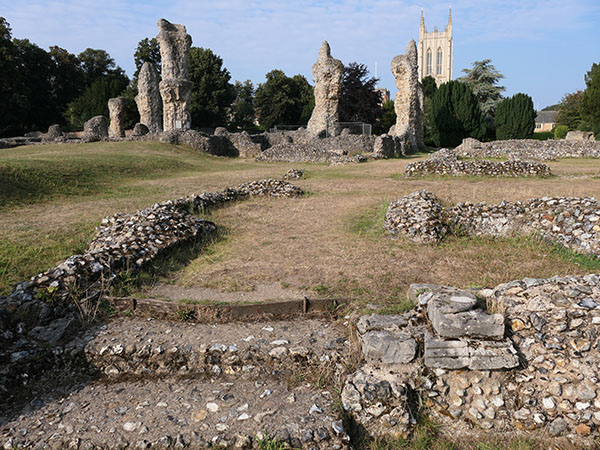
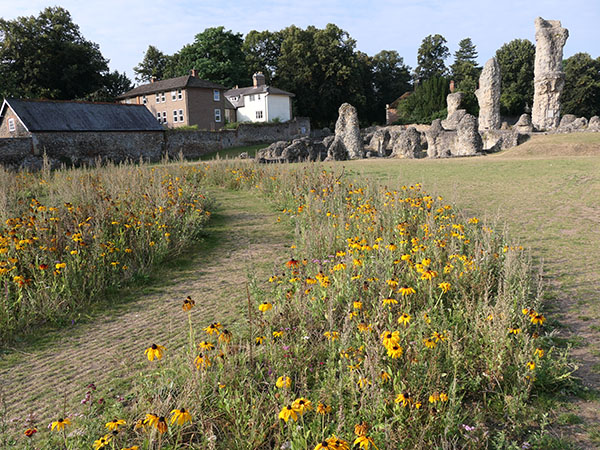
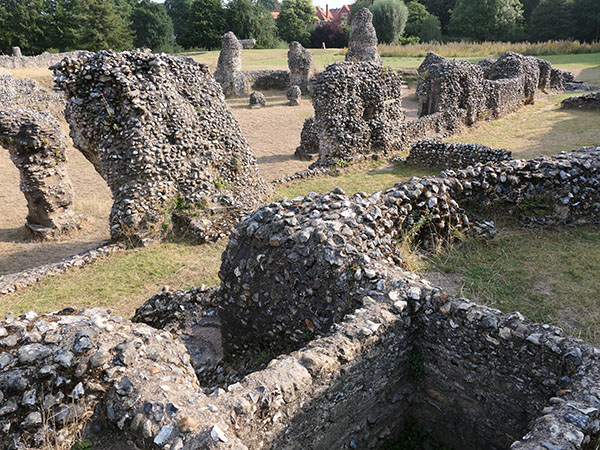
The abbey, below, can be seen with the lower crypt level and columns pointing up from the ground.
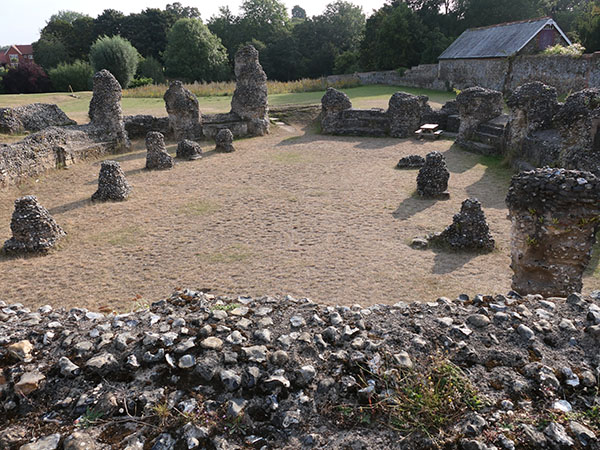
A plaque mentions the link to the Magna Carta where there was the meeting with King John.
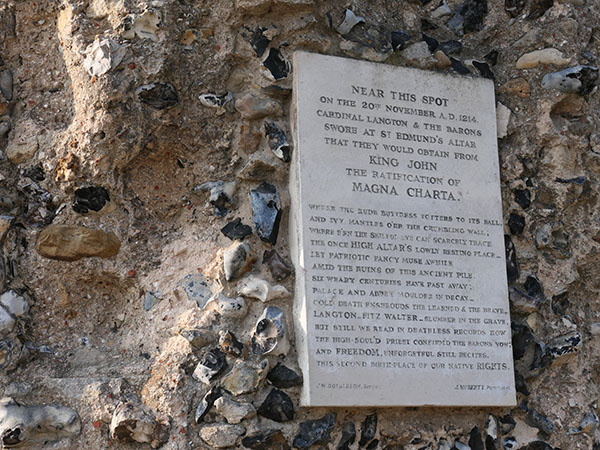
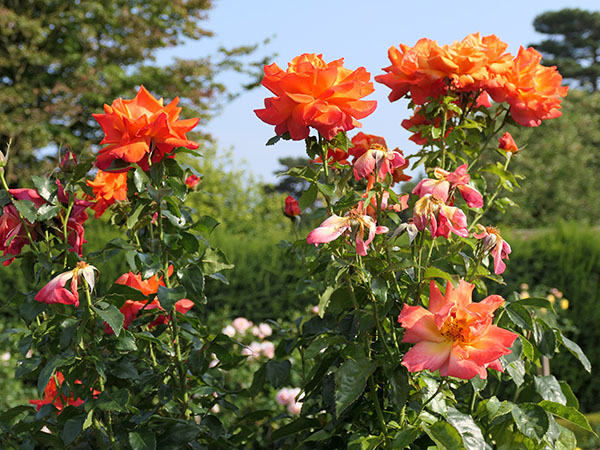
The Norman tower exists on the other side of the present day cathedral.
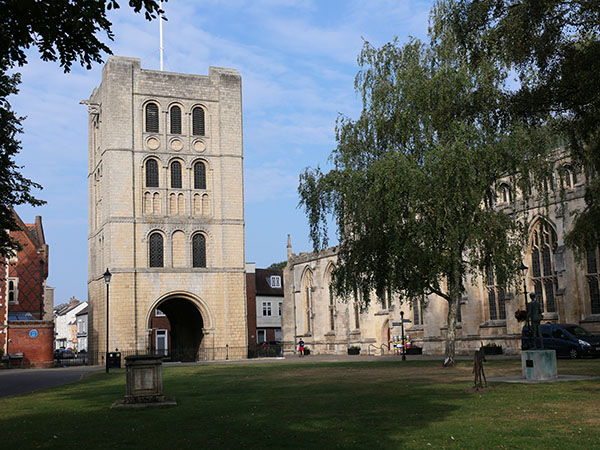
The present day cathedral and buildings appear to use some old stonework from the monastery structure.
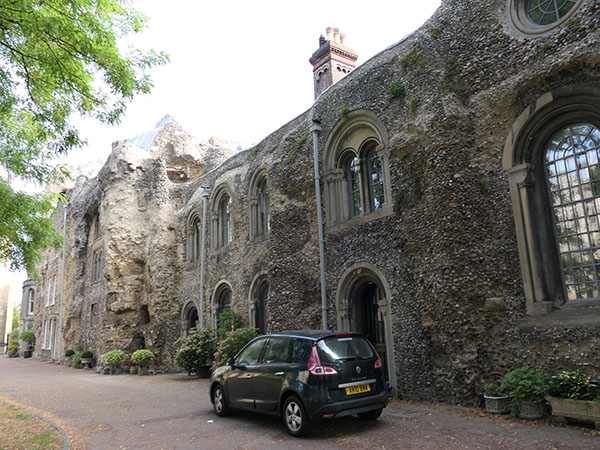
The ruins of a church in the grounds on the opposite side of the cathedral are roped off. There are several graves here, and the chapel is located in the present day cemetary.
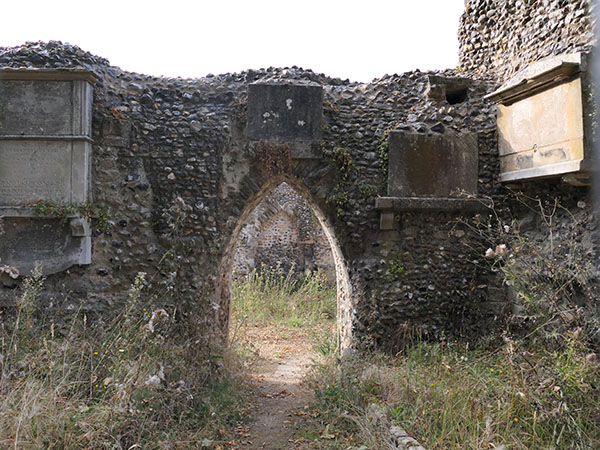
Bury St Edmunds has an attractive town centre with everything within walking distance. Visitors can enjoy a walk around, and the market was taking place during my visit. There were crafts, baked goods, alcohol, clothing, jewellery, and so many different types of items that could be purchased.
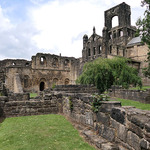
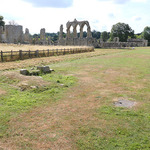
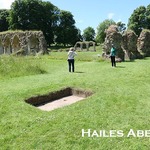
Leave a comment